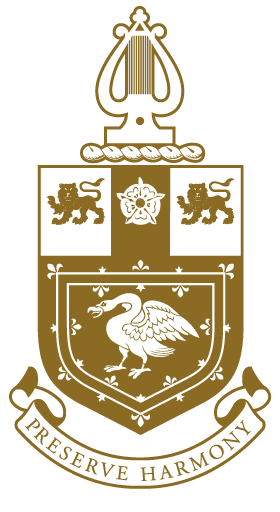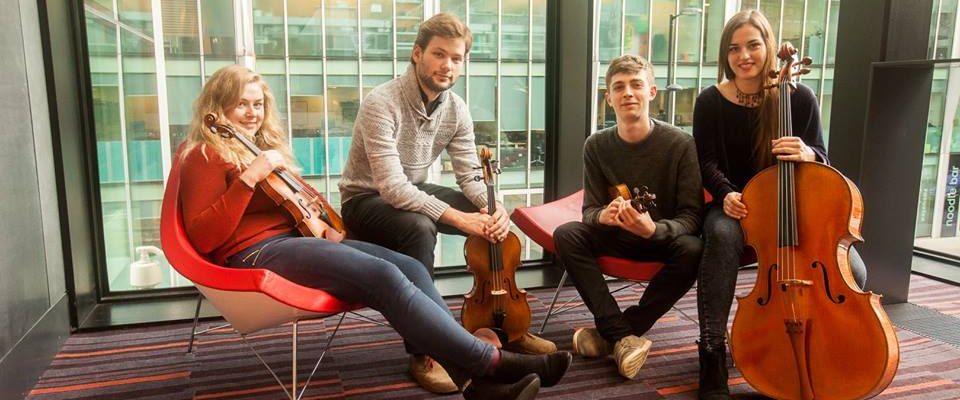Young Artist Interview: Alejandra Díaz
Award-winning cellist Alejandra Díaz is a WCOM Carnegie Palmer Award prize-winner and finalist of the International Pau Casais Grant. A former Guildhall School of Music & Drama Artist Masters in Performance graduate, Alejandra has worked under the baton of renowned conductors, shared the stage with acclaimed artists and performed with orchestras including the Real Filharmonía de Galicia and Guildhall Symphony Orchestra. She has also played with the London Symphony Orchestra and Orquesta Sinfónica de Galicia. Alejandra’s 2017 highlights include the Dvorak Quintet for two violas with Nicolas Dautricourt at the Joaquin Turina International Music Festival “TURINA entre FESTIVALES” and the premiere of six new contemporary works commissioned by Museo de Belas Artes de Coruña.
When and where did you start playing the cello?
I started playing the cello when I was eight years old in Galicia. My original plan was to learn the piano but when I entered the conservatoire, there were no places left. I got to choose another instrument and my father always loved the cello, so that is how my relationship with the cello began.
Who were your early influences?
I have fond memories of my first teacher; coincidentally, her name is “Chelo”. I always had so much fun in our lessons. I think the first contact with the instrument is crucial and I am very lucky to recall that important period of my life with so much joy and affection. But the two earliest influential cellists for me were Jacqueline du Pré and Mischa Maisky. I used to listen to their recordings and feel very inspired by their playing.
When did you begin to appreciate chamber music?
I have always felt a very strong passion for chamber music. I remember performing Brahms’ Cello Sonata in E minor with one of my best friends when I was a kid and already feeling that intimate connection as well as being completely absorbed by the music. But I also have fond memories of my time studying at the Escuela de Altos Estudios Musicales in Santiago de Compostela with the pianist Alexander Gold. We performed Mendelssohn’s Piano Trio No.1 in D minor together, which for me is one of the most beautiful and romantic pieces of music ever written.
How would you describe your relationship with your cello?
My cello is an extension of myself. It is quite funny because every time we travel together it feels as if I am carrying around my dearest son and I can barely take my eyes off him. I care about it in a very special way. But I guess it makes sense as it is part of who I am. The cello I play on now means a lot to me because it used to belong to one my former teachers. It is made of a very rare wood called “hare´s blood” and it produces a very delicate and warm sound.
Tell us about your project: Solo Artist Ensemble
This project came to my mind back in 2010 when I was in the last year of my bachelor’s degree at the Guildhall School of Music & Drama in London. Actually, the idea came to mind while I was taking a shower! The purpose of the ensemble was to give members the opportunity to perform as soloists and accompany each other. It was an exciting and nurturing time.
Which do you prefer, solo or ensemble playing?
Solo playing demands a charismatic personality as well as a combination of skills including a flawless technique and all the responsibility unfolds on you, whereas playing as part of an ensemble is a much more relaxed experience. But it also requires a lot of communication and openness. Both are great ways of making music and it is really hard to say which one I would prefer.
What has been your biggest achievement so far?
I think graduating from the Guildhall School has definitely been a turning point in my life and also one of the biggest achievements in my professional career. But winning a place on the LSO String Experience scheme in 2013 and being the first Spanish cellist in history to play alongside the London Symphony Orchestra has been a dream come true. It was a tremendous honour to take part in two unforgettable tribute concerts for Claudio Abbado and Pierre Boulez.
What’s on your musical bucket list?
To be honest, I am so immersed in my own music that when I finish practising or performing, what I appreciate the most is silence. But I enjoy very much listening to a good opera, flamenco, jazz, soul…Whenever I want to reconnect with myself I listen to Bach or any music from the Baroque period.
You’ve been described as ‘compelling’. What do you think makes a great cellist?
I think a great cellist or any other musician must have so much curiosity and courage as well as a never-ending urge to search for new ways of expression.
What are your future plans?
I am currently collaborating as principal cellist with Orchestra Sinfónica Vigo 430 and we have some very interesting concert programmes coming up. I am also working on the premiere of five new contemporary pieces of five Spanish composers commissioned by Museo de Belas Artes da Coruña which will take place in May. There is always work in progress, but these are my short-term future plans at the moment.
You can find out more about Alejandra at alejandra-diaz.com.





